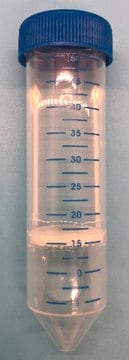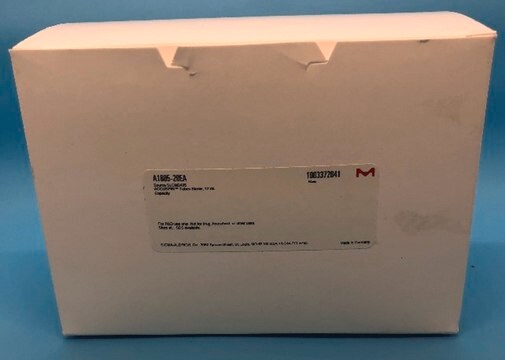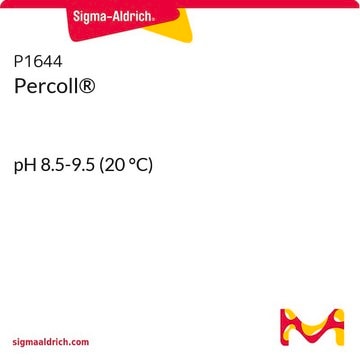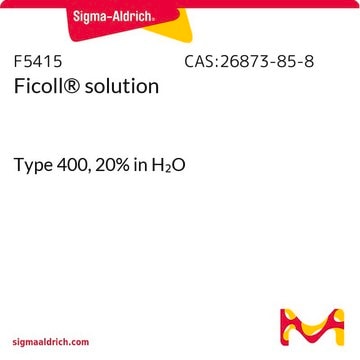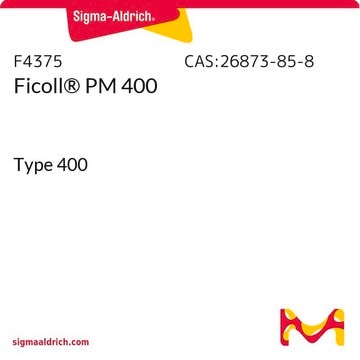A7054
ACCUSPIN™ System-Histopaque®-1077
sterile-filtered, density: 1.077 g/mL
About This Item
Recommended Products
sterility
aseptically filled
form
solution
shelf life
Expiry date on the label.
packaging
pkg of package 12 tubes
density
1.077 g/mL
application(s)
hematology
histology
storage temp.
2-8°C
Looking for similar products? Visit Product Comparison Guide
General description
Application
- human lymphocyte antigen (HLA) typing
- initial isolation step prior to the enumeration of T, B, and ‘null’ lymphocytes.
- preparation of pure lymphocyte suspensions for cell culture and cytotoxicity assays.
- isolation and purification of peripheral blood mononuclear cells (PBMCs) and bone marrow mononuclear cells (BMMCs)citation
- isolation of human lymphocytescitation
- isolation of breast cancer circulating tumor cells (CTCs) from the whole bloodcitation
Features and Benefits
- Optimal recovery of viable cells
- Permits selective separation of blood cell types
- Prevents cell distortion
- Preserves cell viability
- Minimal extraneous cell interference
- Reproducible performance from batch to batch
- Histopaque is sterile-filtered and endotoxin-tested
- Stable at 2-8°C for at least 2 years when protected from light
Principle
Quantity
Legal Information
Signal Word
Danger
Hazard Statements
Precautionary Statements
Hazard Classifications
Resp. Sens. 1 - Skin Sens. 1
Storage Class Code
12 - Non Combustible Liquids
WGK
WGK 3
Flash Point(F)
Not applicable
Flash Point(C)
Not applicable
Personal Protective Equipment
Certificates of Analysis (COA)
Search for Certificates of Analysis (COA) by entering the products Lot/Batch Number. Lot and Batch Numbers can be found on a product’s label following the words ‘Lot’ or ‘Batch’.
Already Own This Product?
Find documentation for the products that you have recently purchased in the Document Library.
Customers Also Viewed
Articles
Centrifugation enables the separation of particles by sedimentation. Learn how to separate particles using a centrifuge and how to use Stokes' law to calculate the velocity of sedimentation.
Centrifugation enables the separation of particles by sedimentation. Learn how to separate particles using a centrifuge and how to use Stokes' law to calculate the velocity of sedimentation.
Centrifugation enables the separation of particles by sedimentation. Learn how to separate particles using a centrifuge and how to use Stokes' law to calculate the velocity of sedimentation.
Centrifugation enables the separation of particles by sedimentation. Learn how to separate particles using a centrifuge and how to use Stokes' law to calculate the velocity of sedimentation.
Our team of scientists has experience in all areas of research including Life Science, Material Science, Chemical Synthesis, Chromatography, Analytical and many others.
Contact Technical Service
